Synthroid Can Work (But not always)
Look.
Many people are quick to jump on the bandwagon and make statements like Synthroid or levothyroxine simply don’t work.
But is that actually true?
Not entirely. In fact, Synthroid CAN work for a lot of people.
But it is true that there are other options that may be BETTER for many of you (we will discuss these options below).
But before you jump ship on your Synthroid and try to switch to another medication there are MANY things that you should know.
These things can potentially help your Synthroid work better in your body and actually help you to feel better.
If you are experiencing PERSISTENT symptoms of hypothyroidism DESPITE having so-called normal thyroid lab tests or taking Synthroid then pay close attention to these factors because they may explain your situation.
5 Reasons Why Synthroid Isn’t Working for You
If you are taking Synthroid and it isn’t working well for you then make sure that you take a look at these COMMON issues.
And remember:
These problems ALSO exist for those taking levothyroxine (they are NOT exclusive to Synthroid only).
#1. Your Dose.
The first place you should look is directly at your dose.
In other words, how much medication are you actually taking?
Synthroid ONLY works if you are taking enough of it.
And this should make sense if you think about how thyroid medication works.
If you have hypothyroidism or a sluggish thyroid then you are taking thyroid medication to supplement the difference between what your body needs and what your body is able to create.
But there’s one big problem with how most doctors dose Synthroid.
And that is that they tend to UNDERDOSE the medication.
Why?
Because they focus primarily on the measure of TSH (or thyroid-stimulating hormone).
And TSH is a poor marker for the thyroid status in the rest of your body due to the difference in deiodinase enzymes found in your pituitary gland (the gland that produces TSH).
What you want to look at instead are your free thyroid hormone levels (including free T3 and free T4).
If your free T3 and free T4 are normal (along with a healthy TSH) then there is a good chance you are taking enough medication.
But you will find that MANY of you reading this have a normal TSH but low free thyroid hormones and this indicates that your dose is insufficient.
The good news is that this problem can be remedied by simply increasing your dose or taking more thyroid medication.
#2. Absorption problems.
Another important problem that many hypothyroid patients face is absorption issues.
It’s not enough to simply take your Synthroid by mouth.
No, not even close.
Once you ingest Synthroid it must be absorbed, then it must be converted, then it must activate your cells, and so on.
And absorption is the FIRST step in this process and it is an issue for many people who take Synthroid and levothyroxine.
What do I mean?
I’m trying to say that many people taking Synthroid by mouth don’t actually get it into their bodies because it doesn’t get absorbed.
Synthroid is a funny medication in that it is exquisitely sensitive to certain factors found inside your gut.
If any of these factors exist then they won’t be absorbed.
The primary driver of these issues is gut-related issues such as irritable bowel syndrome, acid reflux, low stomach acid, constipation, diarrhea, gas, bloating, and so on.
Do any of these sound familiar?
If they are present then you will probably have issues with Synthroid absorption.
You can fight this issue by treating those gut problems to enhance the absorption of your medication.
#3. Conversion issues.
Next on the list is something known as peripheral thyroid conversion.
And this refers to the activation of your thyroid hormone.
You see, Synthroid contains the T4 thyroid medication.
But T4 is not active by itself and in order for it to be activated, it must be converted into T3 (triiodothyronine).
If this process doesn’t occur then your Synthroid will be ineffective.
Your doctor (endocrinologist) knows this but they assume that your body has no problems with this conversion process.

And this is where the problems start.
We know from certain studies that up to 20% of the population, due to simple genetics (1), does NOT convert thyroid hormone as effectively as other people.
This means that up to 20% of you taking Synthroid may not be doing this conversion very well!
There are, of course, many other factors that can influence this conversion process.
Things like being overweight, having inflammation in your body, liver damage, and so on, can all limit T4 to T3 conversion as well.
This is a big problem and it leads us to #4 which is…
#4. It’s just the wrong medication.
While I want you to do whatever you can to try and get your medication to work for you there may come a time when you have to say that Synthroid just isn’t ideal for your body.
But don’t let this discourage you.
There are MANY different types of thyroid medications available.
Your doctor may only be aware of Synthroid and levothyroxine but there are at least 10+ other thyroid medications to choose from.
So if you find that Synthroid isn’t working for you then you can simply switch to another brand or type of thyroid medication and it may actually help you feel better.
Other thyroid medications include:
- Tirosint (T4 only)
- Tirosint-Sol (T4 only)
- Nature-throid (T4 + T3 NDT)
- Armour thyroid (T4 + T3 NDT)
- NP thyroid (T4 + T3 NDT)
- Cytomel (T3 only)
- Liothyronine (T3 only)
- Compounded T4 and T3 thyroid medication (T4 + T3 non-NDT)
And many others.
The key here is to first give Synthroid an honest shot (use the strategies listed here to see if it can work for you) FIRST.
If you can’t find a significant improvement over the course of 6-12 months then it may be time to seriously consider just switching to a different thyroid medication.
#5. You’re taking it wrong.
Lastly is the fact that you may just be taking your medication incorrectly!
As I mentioned previously if Synthroid is not taken perfectly then there is a good chance that it won’t actually be absorbed into your body.
This is why your doctor (and probably pharmacist) told you to take your thyroid medication FIRST thing in the morning and to avoid taking any food or supplements for at least 4 hours after you take it.
Sound familiar?
Well, the reason they say this is because they KNOW that many different things can limit how well it is absorbed.
But when has your doctor ever asked you if you are taking it correctly?
Probably never, even if you are feeling terrible.
This shows that there seems to be a disconnect between what doctors know and how they practice.
Ok, with that in mind, let’s actually talk about how you should be taking your medication to ensure that absorption is NOT an issue.
When taking your thyroid medication consider these important factors:
- When you take your medication matters – Many people take their thyroid medication FIRST thing in the morning but this isn’t the only time of day you can take your medication. In fact, newer studies have shown that it may be BETTER to take your medication at night (2). Your intestinal tract is SLOWER at night which means that it stays in your gut longer which allows for more absorption.
- Are you taking your Synthroid with coffee? Coffee will severely limit the absorption of your thyroid medication. How many of you listening to this take your medication with your morning cup of coffee and your breakfast? Doing this is a recipe for decreased absorption. Coffee SPEEDS UP the intestinal tract (the opposite of what you want) which is why it can cause bowel movements in the morning.
- Are you taking your Synthroid with food? Food, with the exception of water, has been shown in medical research (3) to disrupt Synthroid absorption! And this applies to all types of thyroid medications including levothyroxine. The only exception is a thyroid medication known as Tirosint.
- Are you taking your Synthroid with supplements? Specifically, iron or calcium? Iron and calcium (4) are notorious for BINDING to and INACTIVATING the active component of thyroid hormone! They aren’t the only supplements that do this either. This is why your doctor should ensure that you aren’t taking your Synthroid within 4 hours of either iron or calcium.
Conclusion
What I want you to realize is that there are many things that YOU can do to potentially help improve how your body processes and utilizes Synthroid in your body.
If you are experiencing weight gain, fatigue, hair loss, and so on, despite taking Synthroid then you should take a look at THESE factors.
Many of you reading this will be able to find some improvement just by making these small changes.
And if you can’t find improvement then, yes, it may be time to switch to a new thyroid medication entirely.
But do your best to at least give it a shot for a few months.
Now I want to hear from you:
Are you using Synthroid?
Is it working for you? Why or why not?
Have you tried any of the therapies listed in this article?
If so, which one, and did it work for you?
Leave your experience and/or questions in the comments below to keep the conversation going!
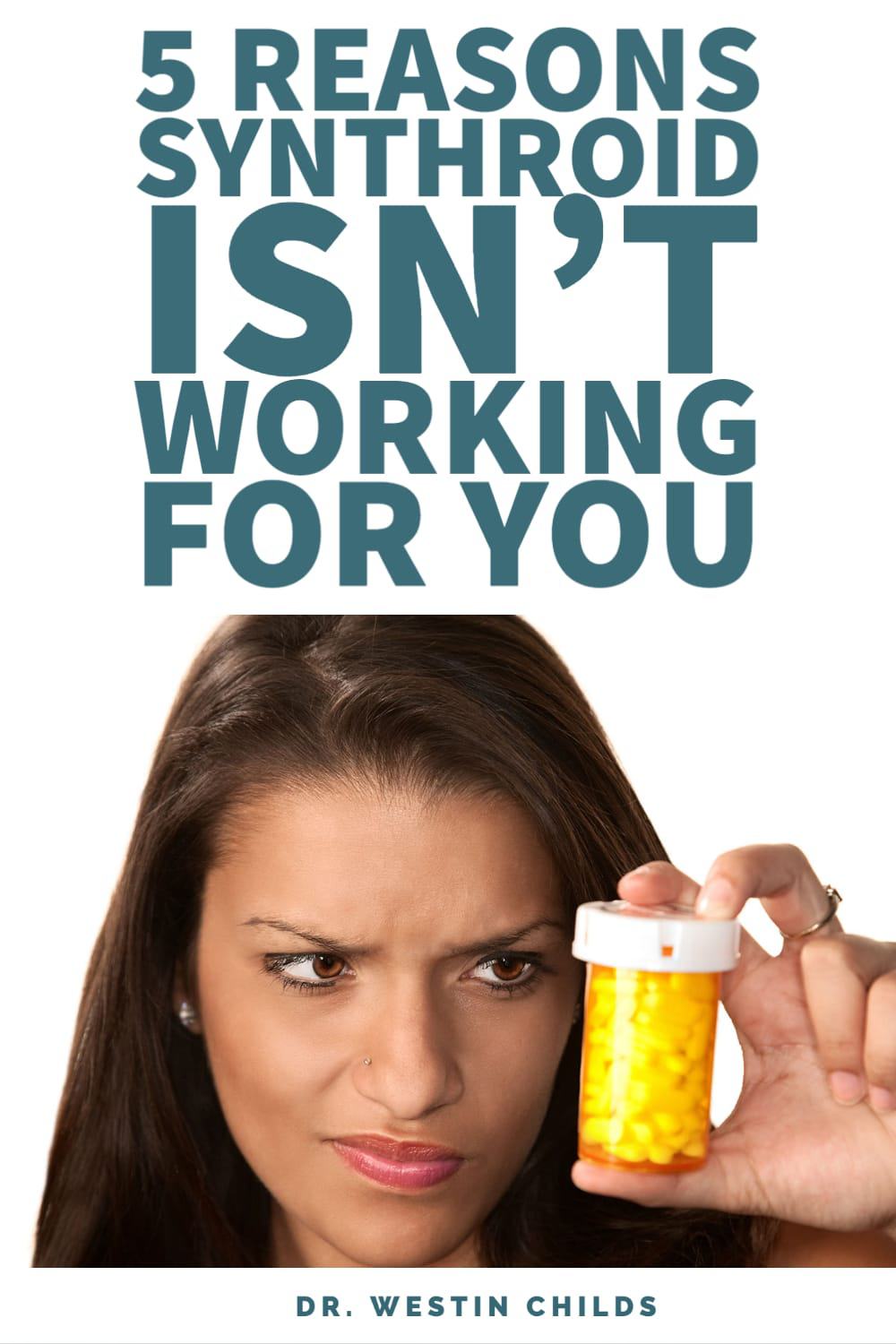

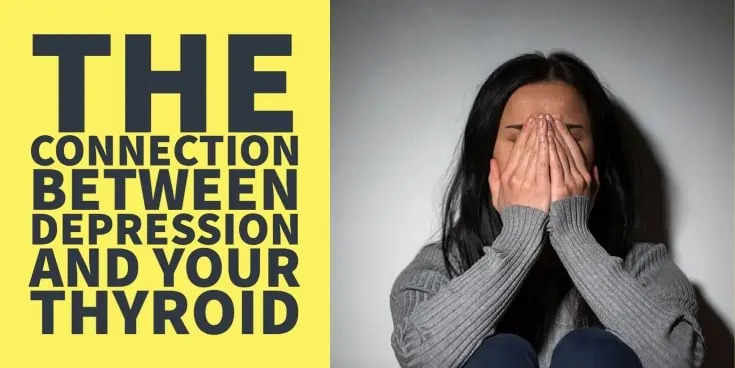
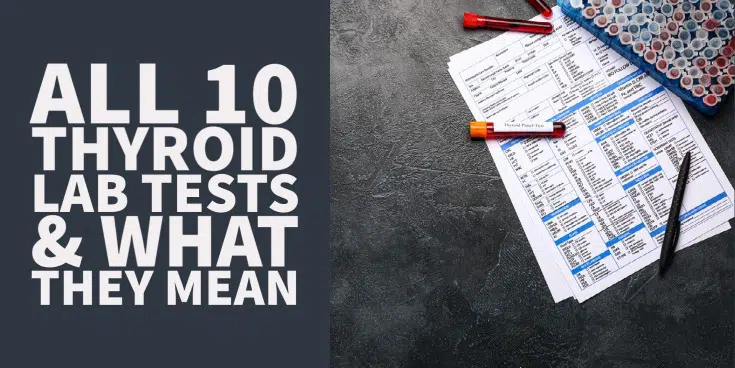
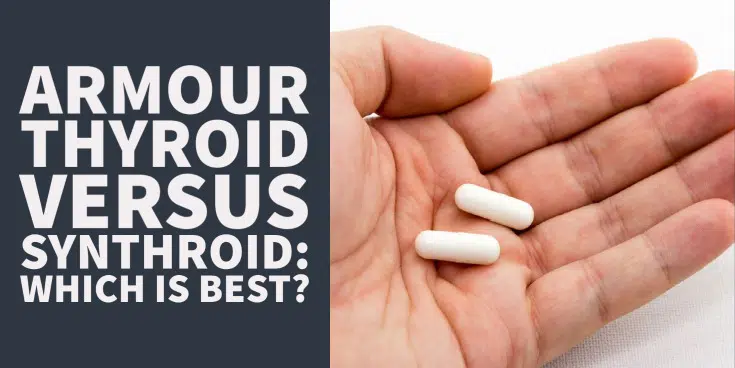
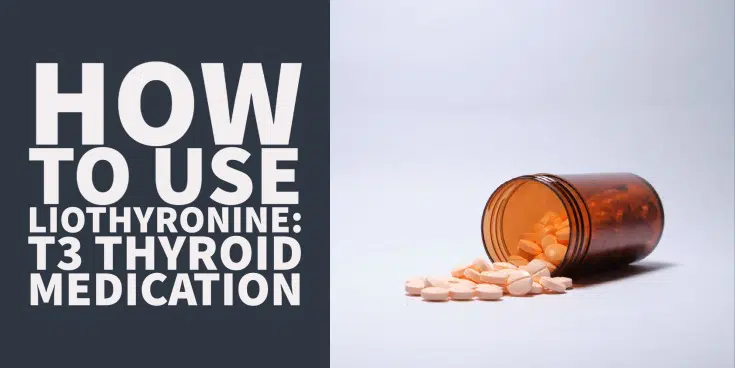

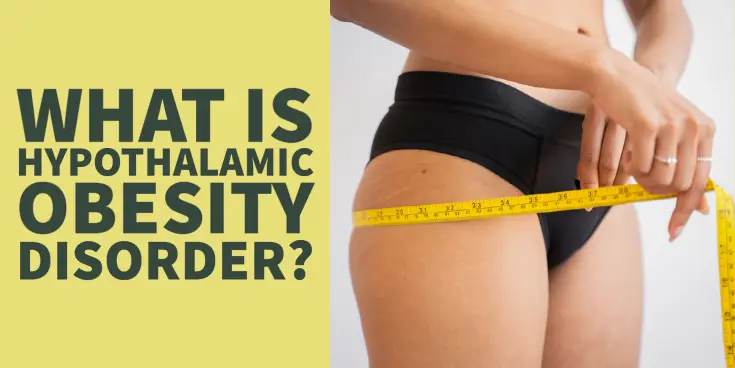

Dr. Westin
I have been taking Synthroid for years before and after removal of my Thyroid. My Physician tests the following every 6 months:
TSH; Thryoxine (T4) Free, direct; T3 Free; Reverse T3, Serum; and HCV antibody .
In Feb 2019, the following were lab results:
T4-Free: 1.41 ng/dl; TSH: 0.00 UIU/ML (low); Reverse T3 (SO): 37.9 ng/dl (High).
I take the following supplements daily:
One a Day Women’s 50+ ( includes selenium 27 mcg and Chromium 180 mcg among other supplements).
Combo tablet with Calcium ( 333 mg), Magnesium ( 133 mg) and Zinc ( 5 mg)
D-3 5000 IU
Biotin 5000 MCg
After reviewing your website i added the following:
Chromium 800 MCG
Selenium 200 MCG
Berberine 500
I reviewed your website and recommendations regarding supplements and when retested in 8/2019 the following were my lab results:
T4-Free: 1.8 ng/dl (High)
TSH: <0.005 ulU/ML (low)
Reverse T3, Serum: 28.2 n/dl (still high, but reduced some).
I also had a 5 lb weight loss.
I have been experiencing fatigue, hear loss, weight loss resistance and low sex drive.
I provided your website to My family physician who did spend some time on it and is willing to alter/add thryroid meds , yet is interested in your input given my labs (pre and post added supplements).
I would appreciate any input you are willing to provide.
Thank you.
I have been taking Nature-Throid 130 mg twice daily. At this dose I feel pretty good but some doctors have told me this dosage is is too high. In Oct my OBGYN told me to cut the dosage in half and the results were awful. She was concerned that my TSH was too low (.005)and T3 was too high (7.32). After changing to the lower dose my TSH remained low (.01) and the T3 was normal (2.8). The puzzling thing was that she was concerned about the low TSH but what she suggested did not change it. I reported that on the lower dose I was very tired and cold and that my body temp was running around 96.4. I was having more digestive issues and slight constipation but none of that mattered to the doctor. I went back to the higher dose after 4 months and am starting to feel better and I am finding a new doctor.
I take the morning medication on an empty stomach ( no food for 6-8 hrs) but usually eat after 2 hrs from dosage. In the afternoon I wait 2 hours after eating to take the second dose and then 1 hour after taking the medication to eat again. So there is a 3 hr fast.
Is the reason I am taking a high dose due to absorption? It’s hard for me to work the 3 hr fast into my day sometimes as I get hungry so adding a longer fast to give it time to absorb would be difficult.
Hi Teresa,
It could be absorption issues but if that were the case you probably wouldn’t see your TSH drop so low (the low TSH indicates it’s getting into your body). It could be the wrong ratio of T4:T3 or there could be other issues contributing to your symptoms.
Hi Westin
If someone has subclinial readings between 3.5 – 6 and have been on levo T4 for 2.5 years.
Could they have permanently damaged thier thyroid taking T4?
Due to being subclinical and perhaps to other issues is it worth testing without T4 or is the body now reliant on T4.
Hi Chrissy,
T4 doesn’t permanently damage the thyroid but it does suppress the HPT axis. But, it is possible that during your time using the medication that some other issue did permanently damage your thyroid (Hashimoto’s, for instance).
Hello I recently read that taking Biotin (for healthier hair, skin, nails which I understand can be compromised with Hypothyroidism) can effect the outcome of your TSH tests….resulting in too low a dose being authorized by the Dr. I am currently on the lowest dose I’ve been on in 20 years (low mcg, plus skipping days due to Dr order) to keep my levels testing to their satisfaction. Can you explain the Biotin effect and also how can I find a Dr that will help me. I have been through the dosing ringer.
Hi Gidget,
Yes, biotin can cause problems. I would recommend that you read this article which outlines exactly how it impacts your lab tests and how to fix it: https://www.restartmed.com/biotin-and-thyroid/
Hi Dr. Westin,
I’m currently taking levoxyl and liothyronine.
It’s not working for me at all. My labs indicate below normal T4 and T3. Is it possible to take the levo at night and the liothronine in the morning?
I appreciate all the information you provide.
Cyndie
Hi Cyndie,
Yes, it’s possible, I’ve had people on all sorts of crazy regimens to try and figure out what works.
Hi!
On 65mg of Naturethroid… now ferritin is low at 8 ( range 16-)
Think it must be diet?
Will eat red meat!
TSH. 1.26
Thoughts?
Best & Thx..
Cathy
Hi Cathy,
Could be diet or it could be your thyroid contributing. I would read this article: https://www.restartmed.com/hypothyroidism-iron-deficiency/
I have been on Synthroid for 20 years for Graves Disease and have felt horrible ever since. Tried Armour Thyroid, but the dosages were not the same with each RX, so the doctor had me to go back on Synthroid. There are NO artificial hormones that my body tolerates as it have side affects on my well being. I’m on 112mg now and TSH was .086 which the doctor said was okay, but I’m not so sure. I feel like I’m taking poison, but don’t know what to do, but to feel bad with little energy and depressive feelings. Guess they think since I’m 72, that it doesn’t matter. I’ve always been a strong, active person, but not the last few years. All blood tests are okay. I’m on a low carb (20mg) and almost Keto type diet which I’ve been able to lose a few pounds. I’m going to try your suggestions regarding Synthroid. Thank You!
Hi Carol,
There are a great many thyroid medications and it’s unlikely that you’ve tried all of them. You may want to look into cleaner alternatives such as Tirosint or Tirosint-Sol.
Many thanks for your reply, Dr. Childs!
4 hours before one eats or drinks? Good info to know but it’s going to be hard to abide by. I need to take melatonin at night so I guess it means get up around 5 or get used to fasting until close to noon. Any known interference with CBD oil? I use that too, at night, for pain.
Hi Diane,
I’m not sure I am following the question. Most people do not have to wait 4 hours after eating/drinking to take thyroid medication. Often, waiting 30-60 minutes is sufficient. You can learn more about how to take your thyroid medication correctly here: https://www.restartmed.com/how-to-take-your-thyroid-medication/
I like the idea of taking my thyroid medication at night and want to try it but I am wondering if taking melatonin would interfere with it. I often take melatonin.
Hi Donna,
Most supplements have the potential to interfere with thyroid medication absorption, including melatonin.
. My Endrocrinologist only test TSH and T4. I would like to change drs to one that tests the free Ts. How do I find a doctor that tests all.
Hi Stacey,
You can find more info here: https://www.restartmed.com/thyroid-doctor/
I have an unusual problem in having achalasia of the esophagus, which means that liquids and foods–and pills–can sit in my esophagus for hours.
I am trying to accommodate this problem by stopping eating very early in the evening and then waiting a minimum of 4 hours before I dose my levothyroxine with only water. This leaves me very hungry as I am needing to constantly eat small amounts of food throughout the day. Needless to say, I often go to bed very, very late at night and I think, along with night sweats, my sleep is suffering.
I tried morning dosing, but waiting hours before being able to have my coffee (and food) is just too much suffering for me.
I’m not sure if there is a way around this. Any advice?
Hi Nancy,
You could take levothyroxine injections and bypass the intestinal tract.
Thank you for all you do to help us. I used to suffer from too little dosage but recently got it changed to the right amount. What a beautiful difference it has made!
I tried taking it at night but I tend to eat a snack late and I was taking it whenever I get up in the night for bathroom. But sometimes I don’t so it was really messing up my consistency. I do drink coffee soon after taking it. I am going to try to stop that.
Thanks again for all your hard work.
Hi Linda,
No problem 🙂 Thanks for sharing your experience!
I have my alarm set for 4 am every single day. When it rings I reach for my pill and my bottle of water and in 2 seconds it’s done and I go back to sleep. My alarm rings again at 5 so by the time I get up, make my bed, go downstairs, make my coffee and feed the cats 🙂 it’s almost 5:20/5:25. I am hoping this is enough time to let Synthroid do it’s thing. (I put my pill in a little bowl so I don’t have to struggle opening the med bottle). I’ve been doing this for two years now.
I have been taking Synthroid for about 3 or 4 yrs. I am always tired, struggle through the day. I do not feel well and I am gaining weight.
I am going to try taking the medication at night and see if that helps. My doctor says my test results are normal. I do not need more Synthroid. She does not know what is the matter with me. Thanks for this information.
Hi Terry,
No problem! Most doctors will say that even though your labs are probably not normal at all. You can find more info here: https://www.restartmed.com/normal-thyroid-levels/
I have had medication issues for years. Was recently put on 50mg Levothyroxine a.m. and 25mg. Liothyronine p.m. It hasn’t been six weeks yet but I had hoped for more improvement by now.
Hi Pam,
You should probably have noticed something by the 6-week mark.
Dr Child’s
What is your opinion on taking Armour sublingual. This is how I take mine. I feel like I can absorb it better. Do you ever recommend sublingual
Hi Debbie,
Rarely ever. I think if you are having so much trouble with absorption that you have to take your medication in that way then you are missing some big problem in your gut that should be identified and treated and if treated you should be ever to absorb it normally again.
Hi,
I am taking Nature-thyroid 32.5 fo r a few weeks. I have been depleted of free t3 since last May 2019. Seven doctors: 3 Endo’s, 1 Intigrative/Internist. All 4 tried telling me all my symptoms are due to my anti depressant! Pathetic. They all follow TSH and that’s it.
Neeeless to say I feel extremely poor and have at least 35 hypothyroid symptoms. I have been suffering with this for 9 months. Thou my new gyno/thyroid Dr. has not figured out why my FT3 sits at 2.2, I tested positive for Epstein Bar. I do not understand what it takes to find out what’s causing FT3 problem. I am having her test the 5 patterns that she may or may not know about thou she is sharp. I’ve been reading about thyroid since May 2019. I am completely debilitated by this problem. The doctors I’ve seen and considered good, are a disservice to me as a patient in my opinion.
Thank you for all the information you have provided and continue to do so. Your site is great!
Hi Cindy,
Thanks for sharing! Most conventional doctors are clueless when it comes to thyroid management but I’m surprised that your integrative internist didn’t do much either. Some physicians use the integrative term more as a marketing tactic to get people in the door which may be the case here.
Your diagnosis of Epstein Barr virus, and the symptoms you shared, makes me think of ME/CFS/SEID; they keep adding and changing the name, Chronic Fatigue Syndrome. I hope you find an answer.
Hi, Taking WP Thyroid and waiting 2 hours after to have coffee. By your article, 4 hours I’d needed between food or coffee. So 2 hours is not enough time. Thanks for your articles!
Hi Pam,
No problem! Hope they help.
I was on Levo for about 9 months. I improved slightly but not much. Did lots of research and finally decided to try the NDT thyrovanz. What an improvement. I had to treat adrenal fatigue along the way to the right dose, but have my life back! So many of the old reliable ndts have changed from their original effectiveness so glad I chose the one I did. Labs have become optimal and antibodies went from 800 to under 100. Would never go back to levo. Many of us need t3 in our medication, not just t4!
Hi Lynnette,
Many people benefit from T3, yes, but you can get that T3 from cytomel/liothyronine as well. The source of the T3 really doesn’t matter so much as the fact that you get it.
I’ve taken Synthroid for over 30 years before and after my thyroidectomy (for a goiter). I never knew about taking it with food and coffee. Last year I began to have high blood pressure and was sent to an endocrinologist who is severe about a 1 hour window After taking Synthroid with nothing but water. She refuses to test anything but TSH and free T4. Do I need any other testing if I have no thyroid?
Hi Dora,
Yes, you should get the full panel.
I was diagnosed with a Lingual Thyroid. I am on Synthroid 100mg.
My dr lowered it from 112mg. Unfortunately, I feel like I am in a fog, pretty tired. Is usual when you lower the dosage. My endocrinologist & g.p. disagree on the normal range.
Hi Eileen,
If the dose is based on the TSH alone you will find that it will probably bounce all over the place.
With my last blood test, my TSH is within normal limits. BUT my T4 Free, Direct was low (0.70), my reverse T3 was low (6.4) and my Free T3 was high (6.4). How odd that both T3’s were the same recording! I take 50 mcg of Synthroid and 25 Cytomel irregularly I might add. Usually my TSH is way lower than this reading, even below 1! Am I messed up or what? Please advise…my current physician looks mostly at TSH and says I’m ok with what my results are but I’m not so sure. I’m wondering if decreasing the Synthroid would help the Cytomel kick in and maybe balance the T4 and T3 to a manageable level. But I don’t know. I live in a small town so not many resources close by.
Dr Childs,
I had a thyroidectomy and wondering if you have information as far as required lab tests and optimal levels? I take Nature-throid
I wish YOU were my doctor;-)
Thank you!
Hi Barbara,
Glad it helps! All of the information on my website directed at hypothyroid patients is also directed at those without a thyroid including medications, lab values, etc. It’s best to consider yourself in this category moving forward. This is also the reason I don’t really dedicate much information directly to those without a thyroid because 98% of all of my information also applies to post thyroidectomy patients.
Dr Childs,
Do you recommend supplementing with iodine? If so, how do you know how much is safe? And what lab test is suggested to test your iodine level?
Thank you again;-)
Barbara
Hi Barbara,
Yes, you can find all of the answers to that question here: https://www.restartmed.com/high-dose-iodine/
Thank you so much for suggesting evening ingestion of thyroid medication, which I went to about a month ago after reading your article. I try very hard not to eat after 8 p.m. and take my meds around 12:15 a.m. Interestingly, I had a follow-up doctor’s appointment today, and my TSH level had dropped relative to my last two results, really without any other significant changes (such as dose) that would influence this. So that tells me that I am doing much better from the absorption standpoint.
Not to worry; I am not satisfied just to go by my TSH number and have been pushing for more than that from my GP, in addition to recently starting with a naturopathic doctor.
I am wondering if you think that the new “acceptable” TSH numbers of 1 – 1.5 or 2 maximum (in Canada) are right or can some people do fine with somewhat higher levels beyond these numbers?
I am grateful for your information.
Hi JE,
If there are optimal levels for lab tests such as the TSH they should be measured at the individual level and not at the group level. The levels you suggest here may work for some but there will be plenty of people who don’t do well in that range.
Dr Westin , you are by far the best thyroid doctor I’ve ever read about! I learned from you I was not a converter a gene from my father years had passed of endless battles of never losing a pound how frustrating that is. When I read your articles about not being a converter sounded just like me. Took my info to my Hormone doc in Ann Arbor mi she was delighted to help me with all my life struggles of never losing weight? It pyrope me eleven months for the t3 and t4 to finally start working boy did I ever lose 35lbs thank you SO Much! Deborah Braun
Hi Deborah,
That’s awesome! Thanks for sharing your story and glad I could help even a little bit.
Hello, I love all your tubies. I’m 72 years old and always had problems to lose weight. I’m 1.72 and 99kilo. I am always tired, very thin hair. Since my 40s. Doctor says I haven’t got a thyroid problem even though I take levroxyn 100. I have paid privately to see a specialist, but he looked at my blood results and said I was ok.
Hello all, I currently take 25mcg of levo first thing in the morning depending on when I wake up.. Usually btw 4am – 5am…I take it with 5mg Amlodipine for high BP… It wasn’t really doing anything and I read somewhere that taking it with vitamin c and zinc helps it absorb better which I have recently started to do with effervescent tablets… I am also going through early menopause and take progesterone capsules at night with estradiol gel… 16days on and 12 off for the capsules… But the weight keeps pilling on despite me doing at least 30mins of exercise a day and watching my diet…I also take berberine an hour after the morning meds…get a little energy in the morning… Massive energy slump in the afternoon… Take a nap(like a child) … Still tired… So what gives???
I have been on 75 Levo for years, original testing had my T4 1.27, TSH 4.39 and RT3 28.7, but have weight loss resistance, insomnia, still cold all the time, constipation. My new functional med doc thinks that based on these numbers, I don’t need ANY meds. He has me titrating off and I feel terrible. Draggy, additional weight gain, very dry eyes and generally depressed. I have tried several other thyroid meds but still no luck. My local functional med doc thinks it is a conversion problem but doesn’t know what else to try. I am being
also being treated for reactivated EBV, which is what I think is getting in the way. Shouldn’t I stay the course with the 75 Levo while I am getting treated for EBV, rather than treat two things at the same time? My body is telling me that I need at least the 75 Levo, but the doc says the numbers say otherwise. Thoughts? Thank you
My doc keeps increasing my Synthroid dose even though my TSH is at .01. I understand that TSH is to tell the thyroid to produce more hormone and that if the hormone is coming from an outside source, the TSH doesn’t have to work, but I don’t want the added Synthroid to shut my TSH off forever. I don’t want to keep increasing the dose, but I don’t want to keep gaining weight and freezing, either.
Hi i have Hashimtos that’s what i was told by my first doctor who was horrible! I have been on levothyroxine for about 10 years my primary care dr just tested me recently and my levels were high so she upped my Levo. It’s been over six weeks and I’m feeling very tired again. At this point I need to find a doctor because it’s ridiculous. Know any good ones in Boston?
I’ve been studying and studying for 6 years now since I had thyroid removed. I “thought” I had a fairly good understanding. And I “thought” I was in the best hands, by working with not only 1 but 2 of the “best” functional/integrative MD’s in Los Angeles, paying through the nose to ensure that I was going to be able to feel the best I could. I have been taking a combo of 125 mcg Synthroid and 130mg NDT (which is a lot of medicine, Endo’s always trying to cut in half and I was hypothermic last year when I obeyed them, never again!).
Alas, I think your blog might have helped me see that I’m not optimal at all and very very symptomatic, still. Everyday I keep learning how much I don’t actually know.
So, I finally sat down and mapped out normal ranges, optimal ranges and my ranges, based on your suggestions, I see clearly that my T3 is not optimal.
Brings up a question for me, why do we get medicated with T4 at all? If T4 is inactive and requires a magic orchestra of events to convert to an absorbable form of T3 and not waste out as RT3, why go through that loop-de-loop at all?
It’s so hard to gauge what will happen in the conversion process, and that can change weekly based on diet, nutrients, coffee, supplements taken too closely to meds…. all of that…
Wouldn’t it be easier for doctors to treat with T3 in a direct straight line rather than the pin ball game approach?
TSH 0.04 (high/hyper)
FT4 1.47 (low end of optimal)
T3 90 (low)
FT3 3.1 (low)
RT3 17 (high)
Hi,
I’ve been on thyroid medication for about 24 years. For many years I loved Synthroid! I felt great! Until menopause…Everything changed. I became so jittery I had to go down to a crumb of Synthroid and then it started making my muscles, especially my neck very tense. I finally went off Synthroid and my muscles improved a bit. I switched to Levothyroxin which never worked well for me, now I’m on Euthrox and my muscles are ok on it, but I don’t even have the energy like I used to. I want to go back on Synthroid, I feel better on it when it works right, but my muscles, especially neck, are more stiff after menopause, when I use Synthroid. Any reason why the stiff muscles now when on Synthroid?
Hi Kim,
Muscle pain is a sign of tissue-level hypothyroidism. Menopause can alter how much thyroid hormone you need so it’s likely that your transition into menopause just left you slightly underdosed from your previous level. You can learn more here: https://www.restartmed.com/hypothyroidism-chronic-pain/
I have been in levothyroxine for 3 weeks now and pain in joints and muscles increased, labs normal so doctor won’t change the medication. What can I do for the pain?
Hi Tami,
I would recommend checking out this article for more information on that topic: https://www.restartmed.com/hypothyroidism-chronic-pain/
I was diagnosed with hypothyroid as age 16. I am now 53. I have always been good with taking my medication. For many years I was not a breakfast person and did not drink coffee in the morning. Over the years my Doctors increased my meds levothyroxine. I am now on 375 mcg. About 6 years ago I went to an endo Dr. for the first time and she questioned the dose. I explained and she decided to test me for hashimoto. It came back positive. My insurance changed so I was unable to continue to see that Dr. There was one Dr. who told me I may need to try Synthroid. So he prescribed it to me and for once my dose needed to be lowered. The pharmacy switched it back to levothyroxine. I never paid attention to my lab results until recently. My TSH is at 69.8 T4 is 6.1, Thyroglobulin is 338.6 H. I have always struggled losing weight but managed to keep it under control until recently. I feel lethargic, severely depressed, I get muscle cramps everywhere in my body and I retain lots of water. I am trying to learn more about my thyroid. I wished I was interested when I was 17. Another thing there was a time I had trouble getting my thyroid medication refilled when I was in my early 20s and after 3 weeks of not taking meds my blood worked showed my thyroid was not functioning. Is it possible that I was born with Hashimoto? When I was very young like between 4-7yo I was a very picky eater. My mom told me all I wanted to eat was cheerios. Could that have something to do with it? My mother had hyperthyroidism I dont think they tested her for Autoimmune. As of right now my Dr. is putting me on Synthyroid per my request. I am being referred to an endocrinologist. <My question to you is what should I have the specialist test for to ensure that synthyroid is right for me?
Hi Melissa,
The unfortunate reality is that, when it comes to thyroid management, both specialists and generalist will treat you about the same so seeing an endocrinologist isn’t likely to provide you much relief. You can learn more why that is here: https://www.restartmed.com/endocrinologist-for-thyroid/
And how to find a doctor that will actually help you here: https://www.restartmed.com/how-to-find-a-doctor-to-treat-your-thyroid/